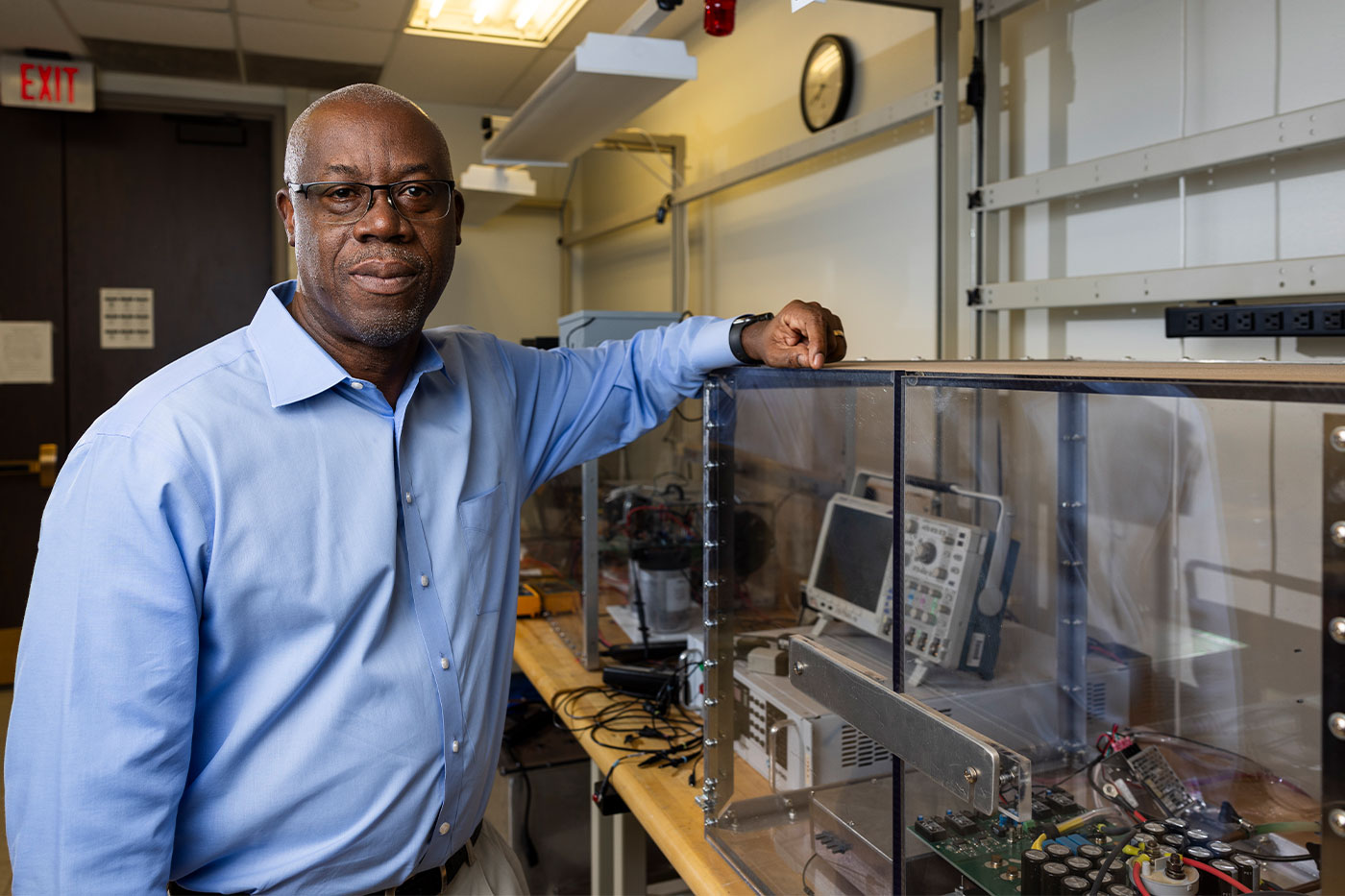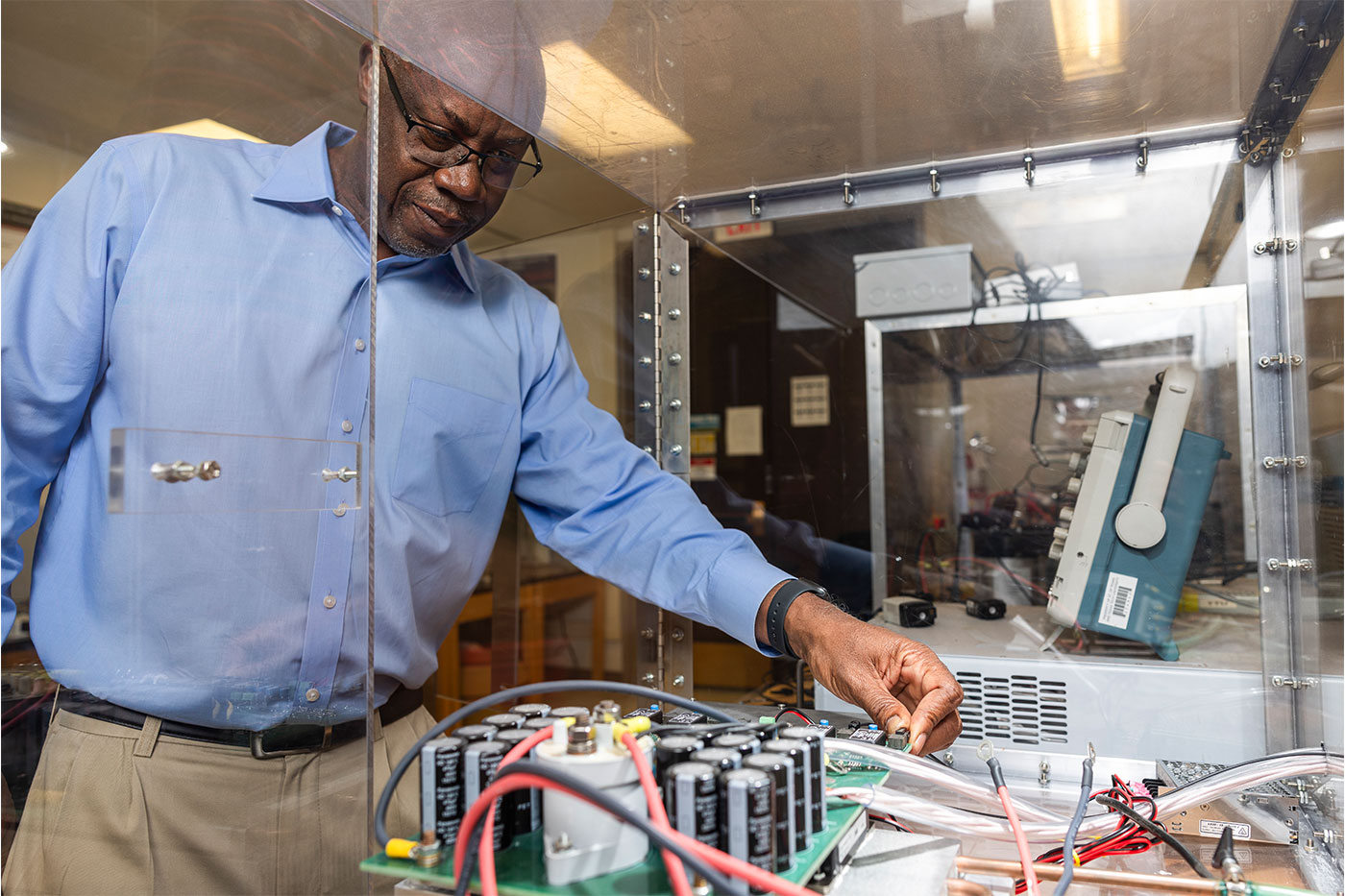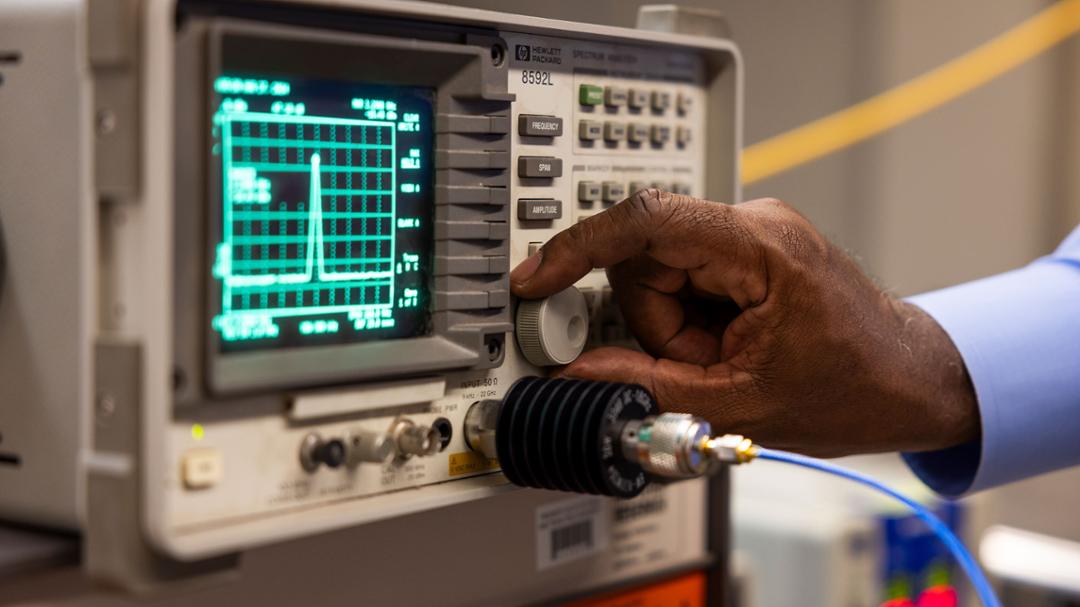Stephen Bayne will utilize talented engineers and students to improve the nation’s defense of its most integral industries through extensive analysis.
If one class-action lawsuit’s allegations are correct, most everyone reading this
article has had their personal information – names, phone numbers, credit history
– exposed to bad actors.
Background check company National Public Data is just one of several large companies
dealing with the fallout of major cybersecurity hacks, totaling over a billion records
stolen in 2024 alone.
While the prospect of an unknown face gaining unauthorized access to personal data
may be unnerving, the ramifications of a school district being hit with a costly ransomware
attack could be far greater. That’s where Stephen Bayne, recently appointed to take
on two leadership roles for the new Critical Infrastructure Security Institute (CISI), sees an opportunity to positively contribute.
“Protecting them is something that, to me, is very exciting as we’re protecting the
community and keeping us as Americans very competitive and moving forward,” he said.
Everyday life growing progressively reliant on technology necessitates effective cybersecurity,
and Texas Tech University is taking the lead in the efforts to protect the nation’s most important assets,
whether related to dams, transportation systems, or other critical infrastructure
sectors the U.S. Department of Homeland Security’s Cybersecurity & Infrastructure
Security Agency (CISA) deems vital to this country.
Bayne, the former chair of the Department of Electrical & Computer Engineering in the Edward E. Whitacre Jr. College of Engineering, was appointed Aug. 1 by the Texas Tech University System (TTU System) Board of Regents to serve as the CISI’s inaugural executive director and vice chancellor for innovation
and collaboration. He’ll play a pivotal role in building up an initiative that aims
to utilize partnerships in the academic, private and government sectors to study and
tangibly improve the security of America’s critical infrastructure systems.

Texas Tech Vice President for Research & Innovation Joseph Heppert said it was impossible to quantify the impact Bayne has made on the community since joining the faculty in 2009.
“Dr. Bayne exemplifies what it means to be a great teacher and researcher,” Heppert said. “He’s not only made significant contributions to energy and critical infrastructure security research but paved the way for the next generation of leaders with his commitment to creating opportunities for Texas Tech students and high school students interested in STEM (science, technology, engineering and mathematics).”
The CISI, located on the Texas Tech campus, will establish a highly secure research facility and multidisciplinary consortium to delve into security strategies and testing that will eventually conclude with stronger policies and infrastructure.
“There’s a lot of challenges that we’re going to have to overcome to continue to grow, because it’s like a chess game,” said Bayne. “You do one thing; the bad guys do something else. It’s back and forth, back and forth.”
Fortunately for Texas Tech, this isn’t Bayne’s first attempt at cultivating such a sophisticated operation.
He was the Electrical and Computer Engineering associate chairman for five years before becoming chairman in 2021, and Interim Dean of the Whitacre College of Engineering. Prior to joining the Texas Tech faculty, he was a Branch Chief at the U.S. Army Combat Capabilities Development Command Army Research Laboratory (DEVCOM ARL). Bayne has also started large research programs at Texas Tech, studying energy and semiconductor devices, which have attracted both students and significant funding.
“It’s all about getting the right people, getting the people around you excited and motivated, and setting a vision.”
The easy part of the process is pointing people to all Texas Tech has to offer, as both a Carnegie Very High Research Activity Institution and a Hispanic-Serving Institution, located in an area with a reasonable cost of living, and with the flexibility to make things happen through research, according to Bayne.
Not only is Texas Tech a strong lifestyle draw, but the potential to make a significant impact beyond the immediate region will also help him attract top talent.
He foresees conducting research activity that contributes even on an international level, while working with the federal government, industry partners, and local entities and preparing undergraduate and graduate students to enter the workforce of a critical field. All 16 of the CISA’s critical infrastructure sectors are somewhat vulnerable to hacking, Bayne said.
What’s at stake if an asset or system within healthcare and public health is exposed? Or water and wastewater systems? The consequences could be of a life-or-death nature.
If a bad actor can turn off power or heat, the most vulnerable people could be affected; if someone gets into a telecommunications system and renders phones useless at an inopportune time, that could also pose major issues.
“It’s a cat-and-mouse game,” Bayne said.
“We’ve got to constantly be vigilant and understand the technology, understand the challenges, the threats, and be one step ahead to keep our nation safe.”
The pressure will be on the CISI to succeed, but Bayne expressed confidence in the people who will be around his team, his experience in leading such outlets, and the potential for bringing in academic, industry, and governmental partners.
His previous time at the ARL and other experiences have helped him obtain contacts within the Army as well as the U.S. Navy and the Air Force, in addition to Sandia National Laboratories and other national labs. Those connections will be critical to building and growing the CISI, Bayne said, and he will continue to work and push with others to get buy in from external entities.
With some of those government agencies having the responsibility of protecting important software that’s increasingly vulnerable in an automated society, they are certainly excited about partnering with Texas Tech and what’s to come, according to Bayne.
The role of the CISI’s leaders will be to set up a regional security operating center, bring in engineers and students to study and test the vulnerabilities of systems and software networks, write reports to send to partners, and conduct workforce development.
“We want to do research and see how we could develop algorithms, maybe using AI (artificial intelligence), to protect our systems,” he continued. “We’re going to do a lot of applied research when we’re looking at these things, and then we can do basic-level research where we’re looking further out, not only to understand the attack but ask, ‘How do we prevent the attack from happening?’”
Specifically, Bayne sees AI as a resource that could help manage data and make decisions and look for anomalies in systems because if done right, AI and cybersecurity could go hand-in-hand.

Students will be just as critical to the institute as AI, if not more, as they will be trained under analysts while at the regional security operations center with the intention of leaving with the ability to work as analysts elsewhere. He mentioned that not only engineering students can participate, but also those from the Jerry S. Rawls College of Business and others who are interested in the field.
The workforce development component is especially important as the cybersecurity industry doesn’t have enough people coming out of school to fill in important roles.
“If we get some really good people out there, and other places are doing it, then we could have a network of folks out there that could help protect our nation’s critical infrastructure,” Bayne said.
Texas Tech students are particularly set up for success because of their drive to learn and push forward, a characteristic Bayne often receives as feedback.
Those go-getter attitudes combined with a willingness to be exposed to new concepts make them ideal for what the CISI is intended to accomplish.
Coming out of the Air Force in 1990, Bayne forwent the opportunity to return home to New York City in favor of attending Texas Tech to obtain his bachelor’s degree, which was the less expensive option. Years later, after leaving the ARL and earning his doctoral degree that would allow him to work with students and give back, he again chose Texas Tech over another offer because of the upward trajectory he saw in the school.
Over the years, Texas Tech leadership has made staying in Lubbock the appealing option.
The CISI is the latest example of that. Bayne said he’s received support from President Lawrence Schovanec and all the way down, which innately is attractive as conducting fruitful research without it is unlikely.
“It’s crucial to have that buy-in from leadership, have the support from staff, and have great students that you could work with, because we’re only as good as our students in the labs and in the classroom,” he said. “The combination of those things makes it very attractive to continue to do these things.”

